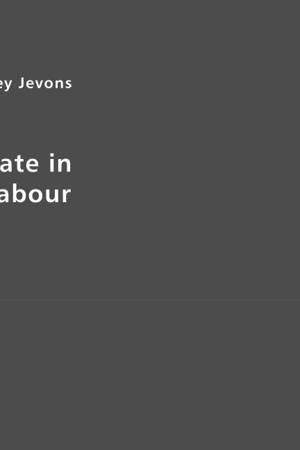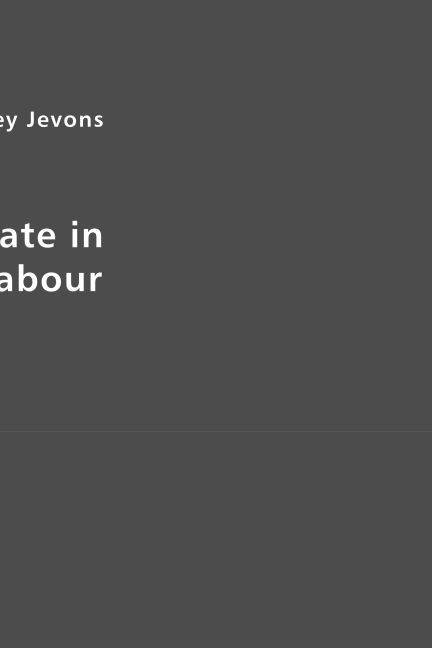
Door een staking bij bpost kan je online bestelling op dit moment iets langer onderweg zijn dan voorzien. Dringend iets nodig? Onze winkels ontvangen jou met open armen!
- Afhalen na 1 uur in een winkel met voorraad
- Gratis thuislevering in België vanaf € 30
- Ruim aanbod met 7 miljoen producten
Door een staking bij bpost kan je online bestelling op dit moment iets langer onderweg zijn dan voorzien. Dringend iets nodig? Onze winkels ontvangen jou met open armen!
- Afhalen na 1 uur in een winkel met voorraad
- Gratis thuislevering in België vanaf € 30
- Ruim aanbod met 7 miljoen producten
Zoeken
Omschrijving
William Stanley Jevons (1835-1882), English economist and logician, was one of three men to simultaneously advance the socalled "marginal revolution." Jevons' work "The Theory of Political Economy" (1871), along with similar discoveries made by Carl Menger in Vienna (1871) and by Léon Walras in Switzerland (1874), marked the opening of a new period in the history of economic thought. Jevons studied chemistry and botany at University College, London. Because of the bankruptcy of his father's business in 1847, Jevons left school to take up the position of assayer at the Mint in Sydney, Australia. Returning to England in 1859, he published "General Mathematical Theory of Political Economy", and in 1863 "Pure Logic", wherein he improved the symbolic logic schema pioneered by George Boole and his teacher Augustus De Morgan. Three years later he was appointed Professor of Logic and Philosophy at Owens College, Manchester, and in 1876 he was glad to exchange the Owens professorship for the professorship of political economy in University College, London
Specificaties
Betrokkenen
- Auteur(s):
- Uitgeverij:
Inhoud
- Aantal bladzijden:
- 276
- Taal:
- Engels
Eigenschappen
- Productcode (EAN):
- 9783865507662
- Verschijningsdatum:
- 1/02/2007
- Uitvoering:
- Paperback
- Formaat:
- Trade paperback (VS)
- Afmetingen:
- 140 mm x 216 mm
- Gewicht:
- 353 g

Alleen bij Standaard Boekhandel
+ 114 punten op je klantenkaart van Standaard Boekhandel
Beoordelingen
We publiceren alleen reviews die voldoen aan de voorwaarden voor reviews. Bekijk onze voorwaarden voor reviews.











